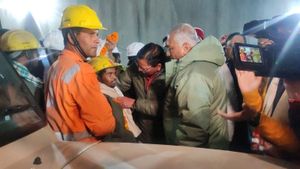The recent federal elections have marked a significant downturn for the Social Democrats (SPD), as articulated by Rheinland-Pfalz Minister-President Alexander Schweitzer. He classified the results as an 'Ampel-Abwahl-Ergebnis,' indicating the electoral losses stemming from the coalition government, which is colloquially known as the 'traffic light' coalition due to its comprising parties: the SPD, the Greens, and the Free Democrats (FDP).
According to Schweitzer, all three coalition partners fell well below their anticipated outcomes and suffered severe defeats. He emphasized the underlying cause of these misfortunes: the noticeable loss of trust among the electorate as the coalition grappled with various challenges over the past months. "Das waren Zutaten für eine Wahlniederlage, die alle drei Partner jetzt zu ertragen haben," he stated, reflecting on the shared burden of the losses.
Facing the somber realities of the electoral results, Chancellor Olaf Scholz announced his intention to stay at the helm of the federal government only until the formation of the new cabinet. Schweitzer remarked, "Und dann wird er seinen Abschied aus der Politik nehmen. Das ist eine sehr klare, sehr eindeutige persönliche Konsequenz." This statement signifies Scholz's acknowledgment of the electoral repercussions and his exit strategy from politics altogether.
Despite the defeats at the federal level, Schweitzer expressed optimism about the SPD's future, particularly with the upcoming state elections scheduled for 2026. He pointed out the historical trend of disconnect between federal and state election results. "Wir haben eine schon traditionelle Entkoppelung der Bundestagswahlergebnisse von den der Landtagswahlen in Rheinland-Pfalz," he noted, highlighting this positive anomaly.
With confidence, Schweitzer believes the SPD will present itself with strong offerings to the voters at the state level. He insists, "Die SPD wird mit einem starken Angebot in die Landtagswahlen gehen," indicating his commitment to revitalize the party's standing and offer compelling initiatives to regain public trust.
His comments resonate with many who view the SPD's performance as not reflecting the party's historical strength or the potential visibility of their platform. The coalition partners must now regroup and forge their paths forward, taking heed of the lessons learned from this electoral experience.
Overall, Schweitzer's outlook carries the weight of responsibility but also the potential for revival as his party prepares for future contests. The SPD's path is paving out with hope, albeit shadowed by the recent election results, challenging them to reconnect with the electorate and redefine their political narrative moving forward.



